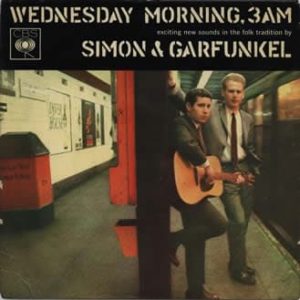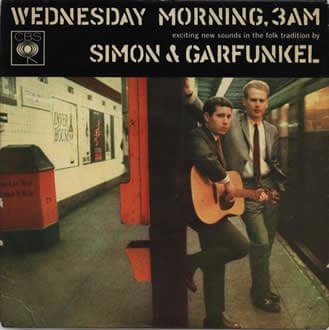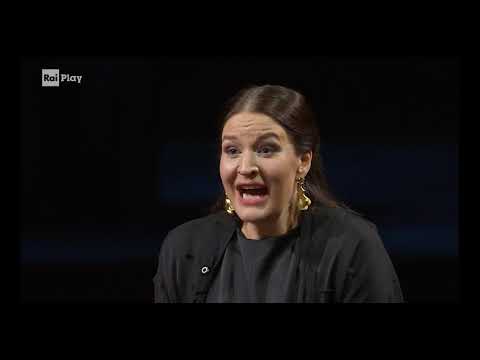The Slipped Disc daily comfort zone (223): The sound of
main…. silence like a cancer grows
The mental health awareness week cover:


…. silence like a cancer grows
The mental health awareness week cover:

Message from the Vienna-based Russian soprano: “I am…

We’re hearing that the Vienna State Opera has…

The atmosphere in the Serb capital Belgrade just…

We’ve been given to understand that tonight’s Lebrecht…

Session expired
Please log in again. The login page will open in a new tab. After logging in you can close it and return to this page.
William Byrd
Anthem: O Lord, make they servant, Elizabeth
https://www.youtube.com/watch?v=P4j3ZSxu2jo
Choir of Magdalen College, Oxford
Dir Bill Ives
Fretwork
O Lord, make thy servant, Elizabeth our Queen,
to rejoice in thy strength;
give her her heart’s desire,
and deny not the request of her lips;
but prevent her with thine everlasting blessing,
and give her a long life,
even for ever and ever. Amen.
Text Psalm 21
“ …. silence like a cancer grows”
The r e a l sound of cancer:
https://www.bbc.co.uk/sounds/play/p02lnwsh
https://m.youtube.com/watch?v=fPcSmCZu8LQ
Cancer is n o i s y, in several ways.
Cancer means high entropy.
Entropy translates to noise.
Not the Sound of Silence, at all.
I suspect that the song, written in 1968, was meant as a political one encouraging us to cut through commercialism and media hype and to acknowledge and reach out to, rather than ignore, the poor and marginalized of society.
However, I believe that it is very wrong of this mental illness media campaign to use this song, and not only because they have distorted what I believe is the song’s meaning.
Although many mentally ill people are poor and marginalized financially, socially, and emotionally and are indeed ignored by the rest of society it is wrong to call them “prophets”.
We do a HUGE disservice to mentally ill people when we romanticize mental illness or mentally ill artists, whether current or historical, as part of the mystique of artistic genius.
Mental illness is a real disease, with a PHYSIOLOGICAL basis, that frequently distorts logical thinking, makes people unable to consider the needs and feelings of others so that they are unable get along with people or function in society and can be a physically miserable feeling, as in clinical depression.
Continued
It is also very wrong to romanticize the alcoholism and illicit drug use that many mentally ill people use to self medicate. That is like romanticizing the sweet tooth of diabetic.
Perhaps creative people may be more prone to mental illness and especially mood disorders, although it could be that we just know more about the mental illnesses of creative people because their lives in general are better known.
However, even if creative people are more prone to mental illness, it is a hindrance to their creativity and art, not a help, because it distorts thinking, distracts and destroys focus, and debilitates physical energy.
I say the above as someone who has been a psychiatric nurse for close to 25 years.
Yes, we do need to do more to limit the “sound of silence” around mental illness but the purpose MUST be to combat it through research and treatment, not to glorify it or even accept it as an acceptable alternative way of living.
I think what you are saying is all true, and as I watched this last night, quite moved by the general association, I was thinking the same as you about the actual words of the song and its application to the people and conditions it was depicting.
But I suspect the motivation was rather more simplistic, and simple — in the best sense of that much-abused word — than an attentive listen to a song many of us know by heart suggests.
To the masses who have not grown up with Simon & Garfunkel, to whom they are “geezer rock,” like Dylan and the Stones, seeing the message in the commercial might just come over superficially. And it is that it is time to end the silence about mental illness, the fear of admitting it, or speaking about it, and the stigma attached to being afflicted by it. Just that silence. The removal of the tapes over mouths as the commercial went on served that message. I found it quite touching, while being conflicted about the familiar words I was hearing.
Ms. Lind, you are absolutely right on the mark here.
You put the excellent comment by Sharon into perfect perspective.
– regards from your geezer friend Greg
Thanks, Greg. I think we all got it more or less right. (May Americans do the same tonight…)
For some time now, the psychiatrized speak eloquently for themselves, and certainly are not obliged to feel grateful for the self-serving pseudo-advocacy of psychiatric nurses, who in my experience were even more hated than the psychiatrists whose dirty work they carried out, generally with no sympathy or understanding for the human material they worked upon in a job that they had been attracted to by anything but concern for, or even interest in, the mentally ill. We got more empathy from the cleaning staff.